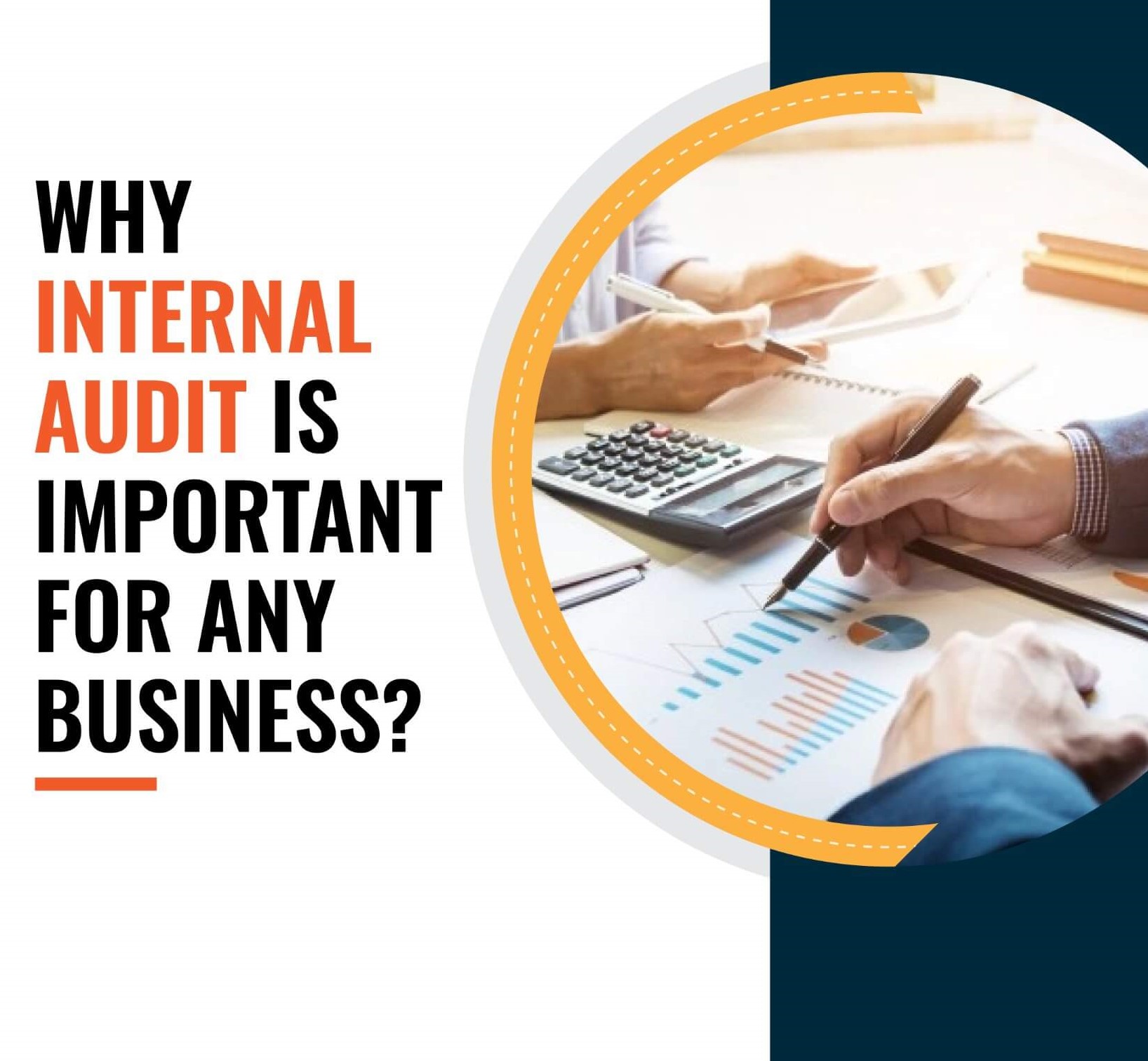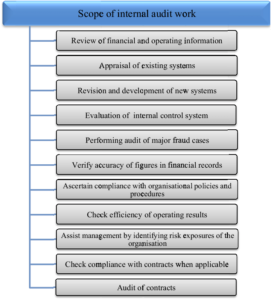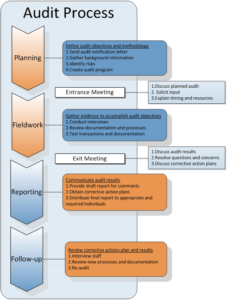Internal Audit: Key to Assurance Services
Page Contents
Internal Audit: Key to Assurance Services

Brief Introduction
The profession of internal auditor is extremely interesting, but at the same time, it’s responsible and requires a great amount of information, skills in working with arrays of often unstructured information, systematic thinking, understanding, and adherence to professional ethics, and far more.
It is no secret that within the process of performing their official duties, employees of internal audit services find themselves in difficult situations related to relationships within the workforce of organizations. Auditing services in Delhi also help the corporate achieve its goals by employing a systematic and consistent approach to assessing and improving the effectiveness of risk management, control, and company governance processes.
Internal auditors audit a particular area, process, line of business, etc., and supply a summary of knowledge that within the tested location a specific system is functioning satisfactorily or, conversely, needs improvement. Internal auditors are specialists of assorted profiles: some can understand accounting issues at a high level, others will be IT specialists, others is technical, etc. the internal audit team is created supported many factors: the scope of the organization, its strategy, size, market position.
In theory, anyone can become an internal auditor (with a particular set of factors). But, as practice shows, without basic teaching, it’s difficult to induce into the profession and establish itself in it.
Novice internal auditors, additionally to having professional skills, should be receptive to the knowledge received, able to add multitasking mode, have a desire to be told and fill within the missing knowledge, and be highly ethical. More experienced internal auditors are required to think big, be highly qualified in a minimum of one direction, have developed communication skills, have high ethical principles, be stress-resistant, etc.
The speed of change within the world is growing rapidly, companies are faced with an outsized number of challenges. In these conditions, competently built systems of internal control, risk management, and company governance are getting more important than ever for the steadiness of the corporate.
Benefits of Internal Audit

- The benefits of internal audits to organizations can be improving the efficiency of certain processes. as an example, checking a particular process can show that certain actions or controls are duplicated at some points.
- Strong internal controls. Evaluating your enterprise’s control environment is your internal auditor’s number-one task. like
- Reduced risk.
- Efficiency.
- Security.
- Improved compliance.
- Integrity.
- The benefits of audit consulting services also lie improving the efficiency of risk management and improving corporate governance.
- For example, internal audit provides advice on the competent distribution of rights and responsibilities, a delegation of authority, identification and mitigation conflicts of interest, the utilization of lean management approaches. Also, the audit vision provides for optimization of management bodies, work formats, etc.
- Internal audit is a very important a part of the organizational structure of the corporate, and its role, a minimum of within the medium term, will increase. Coming to the present profession promises new applicants, on the one hand, interesting career opportunities, on the opposite hand, increased requirements for the extent of professionalism and increased competition.
Skills Requirement of Internal Auditor

- To make and implement the foremost effective management decisions from the purpose of view of the strategic development of an economic entity, constant and effective control is required in any respect stages of the management process.
- In market conditions, the premise for the stable position of any economic entity is its status, the measure of which is its financial stability.
- It is the condition that determines the competitiveness of an economic entity, its potential in business cooperation, allows us to assess the degree of guarantees of the economic interests of both the corporate entity as well as its partners in financial and other relations.
- Thus, in modern conditions, the difficulty of managing the financial resources of an economic entity because the main and priority variety of resources involves the fore.
- Considering the stages of constructing and implementing management decisions, it will be noted that the whole management process is predicated on a particular reasonably information flow, the idea of which is accounting (financial) information.
- The more complex the structure of the internal environment of an economic entity and therefore the more complex and changeable the link with the external environment, the more information is required to form effective management decisions.
- In this regard, the role of accounting services in Delhi, which is that the main information source of the management process, increases. In modern conditions, it became necessary to travel for internal auditing consulting services, which, exercising consistent control over the correctness of accounting, confirming the reliability of accounting (financial) information, provides qualified consulting services to enhance the accounting methodology, as well because of the condition of an economic entity.
- Using the knowledge of accounting methodology, accounting standards, understanding the essence of economic and business transactions, furthermore because the skills of a analyst, the interior control service, determining the effect of every financial and business transaction, interpreting changes in specific reporting items, forms certain conclusions and provides the required recommendations for adoption or adjustments to management decisions of an economic entity.
Elements of Internal Audit
Before defining the place of internal audit within the process of managing an economic entity, and specifically within the control system, allow us to consider the most characteristic features of this technique.
The internal audit consists of three main elements:
- A properly organized method of accounting.
• Control environment.
• Separate controls.
Based on this, you ought to turn yourself to auditing services in India that generate sufficiently complete, timely, and reliable information about financial and economic activities, ensures control over the presence and movement of property, still as prevents the chance of abuse.
An internal audit is that the main element of an internal system that’s designed to confirm the effectiveness of the whole control system and therefore the optimization of management decisions.
The providers of internal auditing consulting services are obliged in the least stages of their activity to unravel certain tasks assigned to them, to proceed from a widely known position of professional skepticism, realizing that there’s a break that every one information received from various sources may carry a particular level of unreliability
Difference Between Internal and External Audit
- Internal audit staff conducts an independent assessment of all systems and processes of the organization from the purpose of view of how effectively current tasks are being solved and goals are being achieved.
- They make recommendations to get rid of bottlenecks, mitigate risks, and as a result they create sure that systems and processes are improved. Firstly, this is applicable to risk management systems, control, and company governance.
- For comparison: the external auditor analyzes the financial statements of the corporate for his or her reliability, specializing in transactions and events that will have a fabric impact on the financial statements; internal evaluate all aspects and directions of the company’s activities, specializing in operations and events that hinder the effective achievement of the company’s goals.
- External users of the accounting audit services are– investors, creditors, government agencies, etc. However, the users of internal audit involves – boards of directors and executive management of companies. For small companies within which the owner is at the helm and controls all aspects of doing business, there’s probably no need for an enclosed audit.
- However, because the size of the corporate grows and therefore the complexity of management processes increases, the owners lose the ability to totally control matters. Internal audit is then very useful. Or if the business owner moves off from current affairs and focuses on the strategic management and development of the corporate, an internal audit can provide him with feedback.
- Internal audit is required as an independent source of data about company affairs for owners, directly or through the board of directors, and this will be through with the assistance of audit consulting services.
- At the same time, an internal audit is additionally necessary for management. The manager’s task is to manage the business, achieving the goals set by the owner within the most effective way. The success of this relies largely on whether the manager has the knowledge to create the proper decisions.
- A manager, as an example, often simply doesn’t have enough time for such an analysis. With the assistance of an internal audit, he receives unbiased information and may take a look at things from a distinct angle, makes the proper decision, and makes sure of its effectiveness.
- Internal audit in a very company is initiated and arranged by its owners, managers, and investors. Typically, the objects of verification are finances and their sources, material resources, employees, products that the corporate produces, and the way it’s managed.
How the internal audit will happen and what methods are going to be employed in the method, the initiators determine independently.
Areas of Internal Audit
There are several areas of internal audit done by the most effective audit firms in Delhi:
- Improving the efficiency of the corporate, increasing the efficiency of its work.
- Ensure reliability in respect of reporting: financial, tax and management.
- Guarantee of the protection of assets.
- Compliance with regulations and legal requirements.
Each of the directions covers a large area of work and pursues the most goal- to draw complete and reliable conclusions that the submitted data meet the wants, don’t contain discrepancies with the law and requirements, all calculations in it are correct, and also the data are complete, reliable and don’t pose a threat to the enterprise.
Internal Auditor: A Positive Sight for Investors
- In addition, to manage tasks, internal auditors can perform economic diagnostics, develop a financial strategy, conduct research, and manage to consult. Internal audit is an independent study and assessment of all aspects of an organization’s activities: improving the efficiency of the internal system, further as the risk management system and also the corporate governance system as a full.
- The purpose of an inside audit is to assist enterprise managers in effectively fulfilling their assigned responsibilities. Auditing services in Delhi provide enterprise managers with: an independent assessment of events; event results analysis data; tips and tricks; information associated with various functions and processes.
- Internal audit is systematically administrated to ensure: reliability of monetary and accounting information; compliance with policies, procedures, instructions, current legislation; safety of the company’s assets; economical and efficient use of enterprise resources; fulfillment of the goals and objectives of the enterprise.
- Rapid changes within the external environment, high competition, growth within the size of the enterprise, increasing complexity of management processes. All these factors result in the actual fact that it’s increasingly difficult for the board of directors, management, and external auditors to receive reliable and timely information about possible risks and also the state of control within the company.
- Auditing and taxation services in India are necessary, because the owners and management of the corporate must know the real state of affairs within the company. Internal audit information is critical to analyse and reduce the amount of risks arising from constant and rapid changes within the external environment; the presence of internal audit is a positive signal for potential lenders and investors, increasing the investment attractiveness of the corporate
Quality Management System under Internal Audit
- Along with the increasing complexity of the business world, auditing services in India are increasingly needed to enhance the effectiveness of risk management, control, and governance processes within a company.
- To be ready to contribute to those three aspects, Internal Audit must be effective. However, several reports indicate doubts about the effectiveness of Internal audits, so this issue has to be investigated further. The complexity of the business world poses opportunities similarly as risks for organizations.
- Nowadays, the internal processes are often very complex, especially in larger and internationally operating companies. Numerous company processes must be merged in order that the required goals are often achieved. Often, external, or internal circumstances can arise that may cause risks or problems. Internal audit provides a support to companies in the filed of uncovering and eliminating inefficient processes and risks.
- An internal audit may be a function by which company processes are checked. In companies, she reports on to the management. With the assistance of an independent and objective review, the corporate is to be supported in achieving its goals. the internal audit can perform the check through processes like planning, organization, or monitoring.
- The “actual state” is compared, so to talk, in order that a “target state” are often achieved. the internal audit is thus also a monitoring instrument of the management at the extent of the compliance structure.
Scope of Internal Audit

The scope of the internal auditing tasks depends on the scale and structure of an organization. in theory, an idea must be created and implemented during internal auditing, through which audit processes within the company are allotted. Reports should even be called for on the tests allotted. additionally, compliance with the internal system and its functionality should be ensured. in theory, internal auditing can include the subsequent tasks:
- Management Audit: It is the examination of performance of management staff,
• Compliance Audit: It is the examination with the applicable guidelines and regulations,
• Prevention: It is the examination in respect of prevention, internal investigation wherever, criminal acts are suspected.
Internal Audit Plan
Developing a concept requires knowledge of the industry, the risks involved, and therefore the stakeholders within the audit process. The experts are ready to facilitate your gather the relevant information and develop a concept that may maximize your resources.

Optimal Management Process

The internal audit performed by experienced top 10 audit companies in India with the acceptable skills and capabilities enables companies to fulfill the high expectations of managing the internal audit function in today’s business environment.
Internal audit is additionally a dynamic management tool that permits you to feature value to your business, whether or not this activity has no direct link with customer satisfaction. Auditors can help improve the results and value of your company’s internal audit in order that it are able to do its objectives and implement effective and efficient risk management, control, and governance processes.
